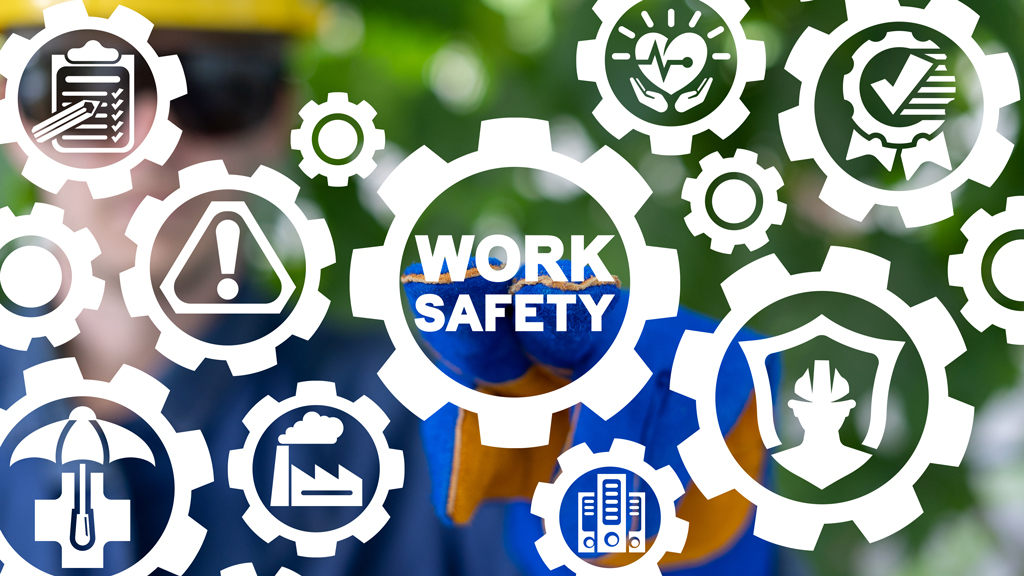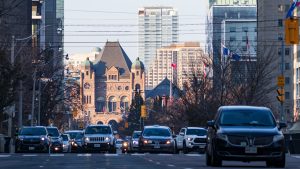Construction health and safety is in a period of transition.
Until recently, the emphasis was on physical safety and the need to prevent injuries at work.
Now, thanks in part to COVID-19, more attention is being paid to the behavioural side of safety and to health.
During the pandemic, construction projects not only have to be safe and hygienic, but also seen by regulators and the public as the same way.
“In the early days of COVID-19, construction was declared an essential service in B.C.,” said Mike McKenna, executive director of the BC Constructive Safety Alliance. “At a time when many other British Columbians weren’t working, hundreds of construction workers could be seen busy at work on the many projects underway throughout the province. You can’t tell what goes on inside a factory, but anyone driving around could see the workers, because construction sites are open.”
BC Construction Association (BCCA) president Chris Atchison says many people questioned why construction was deemed essential when so many other sectors of the economy were shut down.
“We had to show we complied with the health orders,” said Atchison. “Construction has a strong health and safety base, and the COVID-19 requirements fit right into them. For example, construction workers are used to wearing personal protection equipment on the job.”
Before right and wrong COVID-19 behaviour was added to the list, workplace health and safety had already grown to include bullying and harassment, mental health and drug and alcohol abuse.
This expanded understanding of jobsite health and safety is extending outward to meet the corporate concept of Environmental, Social and Governance (ESG) that has been making its way into the business mainstream.
Because ESG is partly subjective and much of it is difficult to measure, there are no hard and fast rules about what it is and isn’t.
In general, the “E” in ESG includes such things as waste and resource management, recycling and resource efficiency.
“G” refers to procurement, supply chain management, stakeholder engagement and diversity, equality and ethics.
“S” is where ESG meets workplace health and safety.
It covers such things as health and well-being, diversity and social inclusion, education and skills training, and emergency response planning.
ESG is having an impact on businesses around the world as they face an increasing number and complexity of regulatory, reporting and customer demands.
“ESG is a bucket term that broadly refers to sustainability, which in the present day is the ability of the Earth and human civilization to co-exist,” says Helen Goodland, head of research and innovation at SCIUS Advisory Inc. “The United Nations was an early supporter of the principles of ESG.”
The B.C. construction industry is taking ESG seriously.
For example, the BCCA created the Builders Code (BC) as a standard code of construction conduct in the province.
The purpose of the code is to reduce workplace risk and ensure a safe and productive environment for workers.
In 2019, BCCA established the BC Champion Awards to recognize “positive and proactive” employers.
Four employers were honoured recently with five BC Champion awards.
The companies were recognized for “leading the way in advancing the workforce culture of British Columbia’s industrial, commercial, and institutional construction sector.”
The 2021 winners are: RAM Engineering Ltd. (Community Champion, large employer category); Lacey Construction Ltd. (Community Champion, small and medium employer category); Westcana Electric Inc. (Contractor of the Year and Workplace Culture Champion); and Houle Electric Ltd. (Loyalty Champion).
“The Builders Code is part of our on-boarding process and we include it in all of our marketing material and proposals,” said Jessica Boustani, RAM’s human resources co-ordinator. “In addition, we promote it on our company’s website.”
Taylor Manhas, Westcana’s health and safety co-ordinator, says most of its workforce has taken BC training.
“Westcana also ensures that our new hires understand the importance of the Builders Code by including training during the orientation process,” said Manhas.
The BC has benefited Westcana in many ways, he says.
“The current labour shortage makes it harder to recruit and retain qualified tradespeople,” said Manhas. “Our recognition by the Builders Code as a progressive employer has meant Westcana has been receiving multiple applications from diverse workers to come work for us.”
Chuck Phillips, president and CEO of Houle Electric, says the company supports a variety of diversity, equity and inclusion initiatives. They include truth and reconciliation training and education; outreach and partnerships with Indigenous communities; and the use of gender-neutral titles.
“The Builders Code closely aligns with our core values and reinforces what we stand for and the principles upon which we operate,” said Phillips.











Recent Comments
comments for this post are closed